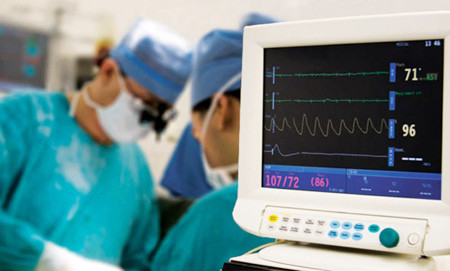Abbott rolls out smartphone-connected ICM in the U.S.
October 25, 2017
Source: Guidedsolutions
 892
892

The FDA has cleared Abbott’s smartphone-compatible insertable cardiac monitor (ICM), the first and only device of its kind in the U.S. This provides patients and physicians with another way to monitor and diagnose abnormal heart rhythms.
Implanted in the chest, an ICM continuously monitors a patient’s heart rhythm. Abbott’s Confirm Rx ICM transmits heart rhythm data via Bluetooth to a smartphone. Patients may use the myMerlin app to view this data and add notes that may be helpful for their physicians. The app also sends the data to the physician’s office on a preset schedule.
Abbott picked up both the Confirm Rx device and the myMerlin app in its $25 billion acquisition of St. Jude Medical.
Connecting the ICM to a smartphone eliminates the need for a bulky bedside transmitter and separate handheld activator, Abbott said. This means a patient may record symptoms at any time and transmit them to their doctor without waiting for a nightly sync, as with a traditional transmitter.
"Confirm Rx shows what we can do with cutting edge communication technology and the most advanced medical devices that provide new opportunities to improve patient care," said Avi Fischer, M.D., divisional vice president and medical director of Abbott's Cardiac Rhythm Management unit, in a statement. "By offering a device that uses Bluetooth wireless technology from the patient's smartphone, we can help physicians easily and remotely diagnose potentially dangerous abnormal heartbeats without requiring the patient to use a separate or cumbersome recording device."
ICMs are currently used to assess symptoms, such as palpitations, which could be caused by an arrhythmia, according to Medscape. They may also have an “emerging role” in managing patients with atrial fibrillation and patients at risk of ventricular arrhythmias.
The Confirm Rx won a CE mark in May this year.
“The Confirm Rx ICM device will be an important tool for diagnosing patients with suspected arrhythmias, such as those who have experienced fainting or palpitations," said Georg Nölker, M.D., of the Herz-und Diabeteszentrum NRW, Ruhr-University in Germany, at the time.
By Ddu
Read more on
- Breakthrough Device Designation Granted to Digital Intervention for Alzheimer’s August 27, 2018
- FDA Approved Eye Drop Oxervate to Treat Neurotrophic Keratitis August 27, 2018
- Experimental Ebola Treatments Approved by Congo as it Sees Flare-Up in Cases August 24, 2018
- First Dual-Lead Nerve Stimulator for Pain Management gets FDA Nod August 22, 2018
- Bristol-Myers Squibb’s Opdivo Ensures a Lung Cancer Position August 22, 2018
your submission has already been received.
OK
Subscribe
Please enter a valid Email address!
Submit
The most relevant industry news & insight will be sent to you every two weeks.



